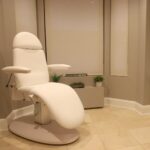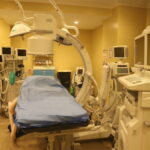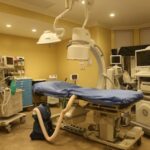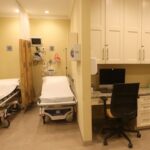Hernia Treatment with City Surgical Care
Vascular and Cosmetic Surgery & Treatments
City Surgical Care’s hernia surgeons specialize in hernia repair treatment options for umbilical hernia, inguinal hernia, and sports hernia including:
- No-Mesh Hernia Surgery
- Hernia Surgery with Mesh (biologic mesh)
- Laparoscopic Repair
- Open Repair
- Muscle Flap Repair
- Component Separation Repair
Contact Us About Hernia
Please complete the form below to get in touch with our team.
About Hernias
Hernia Symptoms
While some hernias have no symptoms, inguinal hernias (which are most common type) typically cause one or more of the following:
- Groin pain or discomfort that intensifies with pressure (when coughing, bending or lifting, for example)
- Weakness in the groin
- Pressure in the groin
- A bulge in the area on either side of your pubic bone
- Burning or aching at the bulge

Hernia Treatment Options
Surgical Hernia Repair
There are several hernia surgery options available to patients but, in our opinion, there is no “one size fits all approach”. In general, two major categories exist, mesh and no mesh hernia repair.
Mesh or No Mesh Hernia Surgery?
Our hernia surgeons are not advocates of mesh repairs. Data suggests over 50% of those implanted with mesh have significant issues resulting from the implant, such as chronic pain and infection or foreign body reaction to the mesh. In fact, a large part of our practice is based on the removal of previously implanted mesh and redo repairs by our hernia surgery specialists.
If we do implant mesh in our practice, we use what is called a biologic mesh. This is a specialized type of mesh that becomes part of your body, and infiltrated with your own tissue. Biological mesh is not widely used because it is far more expensive than conventional mesh. At City Surgical Care, we feel the benefits to our patients are worth the cost.
The primary benefits include much lower risk of chronic pain and foreign body reactions and lower risk of infection. These two issues are the leading cause of post-operative mesh complications and the main indications for mesh removal after implantation. Even when we use biologic meshes, we minimize the size of the implant to ensure the risk of complications is as low as possible in order perform the most stable and successful repair.
Laparoscopic vs Open Repairs
We feel laparoscopic repairs are best for older, high-risk patients who cannot tolerate abdominal incision. Patients who are sedentary and not particularly concerned with perfect alignment of their core muscles are also good candidates.
The vast majority of our patients do not fit into either of these categories. More commonly, we see patients after significant weight loss or multiple pregnancies, and are otherwise quite healthy and active.
Patients after weight loss and pregnancies often have more complex defects that require more intensive repairs. In addition, the excision of excess skin and loose tissue and realignment of their abdominal wall musculature are common factors.
For this reason, our hernia surgeons utilize 2 separate types of incisions for all or our hernia repairs.
- Simple hernia repairs are performed through a small belly button incision. In groin hernias, the incision is made below the waistline.
- Complex hernia repairs with multiple problems or excess skin and tissue are addressed through a lower abdominal “tummy tuck” incision. Tummy tuck incisions address all issues in the abdominal wall at once. It can be much more difficult to address the abdominal wall through this incision, however we have become quite adept at this approach and feel that the overall result is hugely beneficial to the patient. In addition, we can remove any excess skin and tissue at this time that is either bothersome to the patient in terms of skin irritation, or that may impair wound healing, or prevent full exposure at the time of operation. The overall result is a much more aesthetically pleasing, functional, and strong abdominal wall.
We focus deeply on specialized repair to encompass all functional issues while at the same time improving aesthetic ones.
Muscle Flap Repairs/Component Separation Repairs
In some instances, a component separation repair is necessary. There are specific indications for this procedure, such as large or complicated defects, the presence of infection, or in recurrent hernias.
Component separation repair is the gold standard hernia repair. It is a very specialized repair that we are adept at performing.
Risks of Hernia Repair Surgery
Any surgery or procedure has a theoretical risk of bleeding, infection, blood clots, and damage to adjacent structures. This is the same with hernia repair surgery. Prosthetic mesh complications confer a significant amount of risk, and for this reason we avoid them at all costs and use non mesh or biologic mesh repairs.
More complex, more chronic, and redo hernias always confer a higher risk due to variants in anatomy and scar tissue, as well as a poor blood supply, however our hernia specialists have a significant amount of experience with redo surgery at City Surgical Care, in even the most high risk patients.
Risks of Not Repairing a Hernia
In most cases, hernias are not an emergency and repair is elective. However, the longer you wait to repair your hernia, the greater the risk of more serious problems occurring.
In general, pain, tenderness, and bowel strangulation (in an emergency) are the risks. For these reasons, we believe almost all hernias should be repaired if identified.
If, for some reason, you must delay repair, we always inform patients on how to avoid an emergency. In general, most hernias can be “reduced” at home, meaning you can push whatever is stuck, back in. This typically avoids emergency operations, but should be discussed with your surgeon, as this is not a long-term solution.
Types of Hernia
An umbilical hernia, or abdominal hernia, occurs when a section of the intestine or other abdominal tissue pushes through a weakened area in the abdominal muscles near the belly button (umbilicus). This results in a bulge or protrusion at the belly button.
Umbilical hernias are more common in infants, especially in premature babies, due to the incomplete closure of the abdominal muscles around the umbilical cord. In most cases, these hernias resolve on their own as the abdominal muscles strengthen and close over time, typically by the age of 1 to 2 years.
In adults, umbilical hernias can also occur, often due to factors such as obesity, pregnancy, or excessive strain on the abdominal muscles. Unlike in infants, adult umbilical hernias are less likely to close on their own and may require surgical intervention if they cause symptoms or complications.
Common symptoms of an umbilical hernia include a noticeable bulge or swelling near the belly button, discomfort or pain at the site of the hernia, and tenderness or aching in the abdominal area. If you suspect you have an umbilical hernia, it is advisable to seek medical attention for a proper diagnosis and appropriate management.
An inguinal hernia is a condition in which a portion of the intestine or other abdominal tissue protrudes through a weakened area or opening in the abdominal wall, specifically in the inguinal canal. The inguinal canal is a passageway in the groin that houses the spermatic cord in men and the round ligament in women.
Inguinal hernias are more common in men than in women and can occur at any age. They often result from a combination of factors, including a weakness in the abdominal muscles, increased pressure in the abdomen, and activities or conditions that strain the abdominal muscles, such as heavy lifting, obesity, chronic coughing, or straining during bowel movements.
There are two main types of inguinal hernias:
- Direct Inguinal Hernia: This type typically occurs in older adults and is caused by gradual weakening of the abdominal muscles over time. The hernia bulges through a weak area in the lower abdominal wall.
- Indirect Inguinal Hernia: This type is more common in infants and young children but can also affect adults. It occurs when the inguinal canal, which is present since birth, does not close properly, allowing abdominal contents to protrude through it. Indirect inguinal hernias are more common in males.
Common symptoms of an inguinal hernia include a visible bulge or swelling in the groin area, discomfort or pain, especially when lifting or bending, and a feeling of heaviness in the abdomen. In some cases, inguinal hernias may cause complications, such as incarceration or strangulation, which require prompt medical attention and may necessitate surgical repair.
Surgical intervention is often recommended for inguinal hernias, particularly if they cause symptoms or complications. The surgical procedure involves pushing the protruding tissue back into place and reinforcing the weakened abdominal wall with stitches or a mesh patch to prevent a recurrence. If you suspect you have an inguinal hernia, it’s important to consult with a hernia specialist or hernia surgeon for a proper diagnosis and appropriate management.
Ready To Book?
Hernia Treatment at City Surgical Care
 City Surgical Care is committed to helping patients receive the best care possible. The first step in the journey of effective care is always a medical consultation.
City Surgical Care is committed to helping patients receive the best care possible. The first step in the journey of effective care is always a medical consultation.
Medical consultations are important because no two patients are exactly alike. In other words, consultations enable our doctors to understand each patient’s unique case, and determine the best treatment plan.
Prior to booking a hernia consultation with our surgical practice, our team will collect your insurance information to determine if our providers accept your specific insurance plan. If we do not accept your medical insurance, we will inform you of any out of pocket costs associated with a hernia consultation and help you weigh your options. Either way, a doctor must see you before we can tell you what treatment for your condition will entail, from both a medical and cost standpoint.
City Surgical Care treats patients in need of hernia repair surgery in our New York and New Jersey facilities. Contact us today to learn more about your treatment options for mesh and no mesh hernia repair.
Meet Our Team
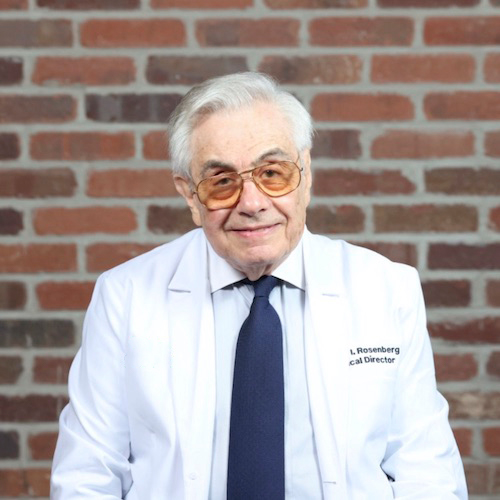
Victor I. Rosenberg, MD, FACS
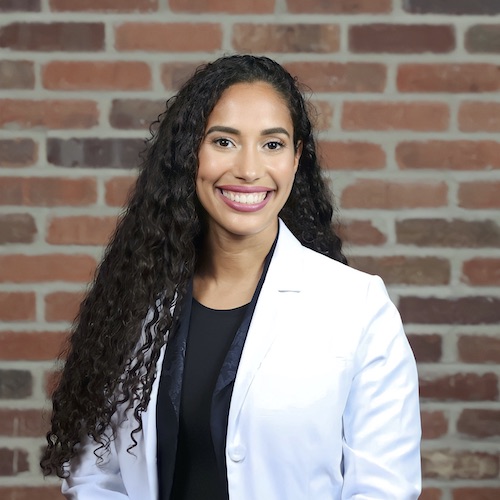
Glenys Hernandez, PA-C, MPAS
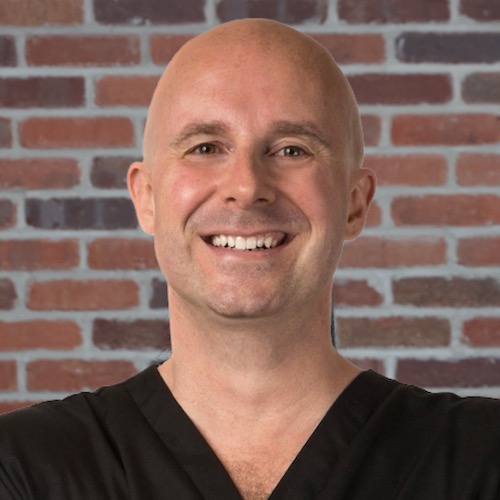
Christopher C. Hollingsworth, MD
Contact Us Today!



